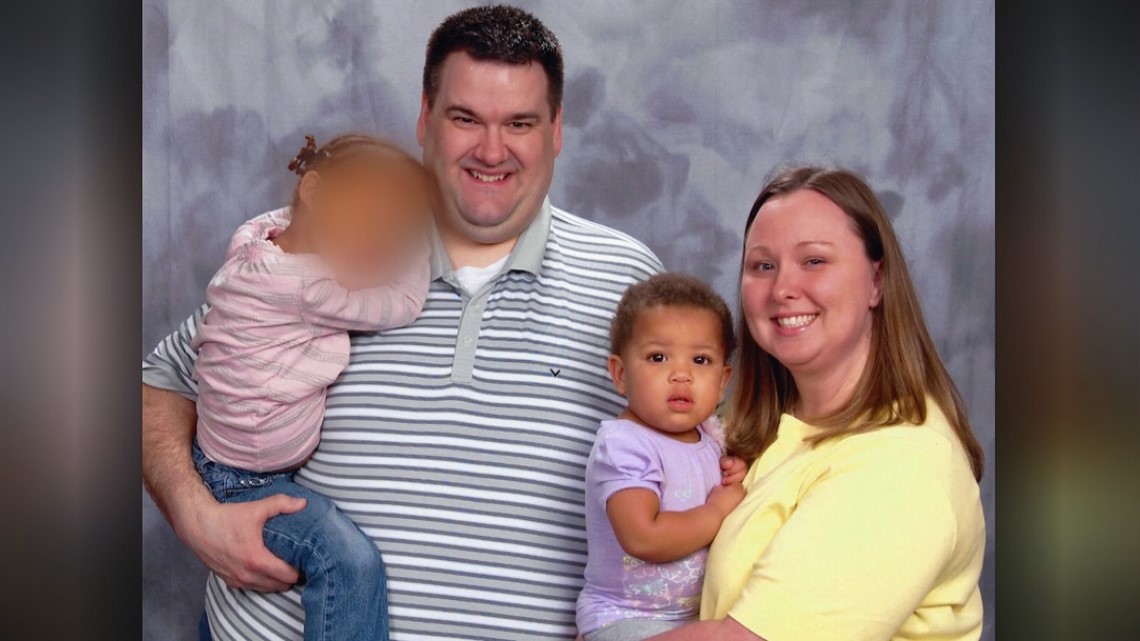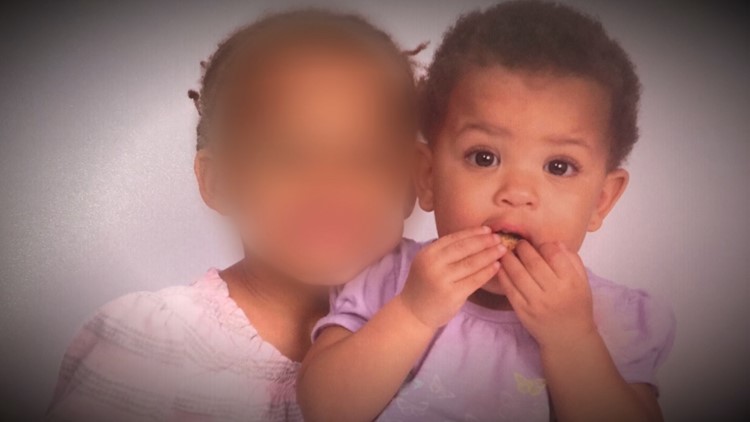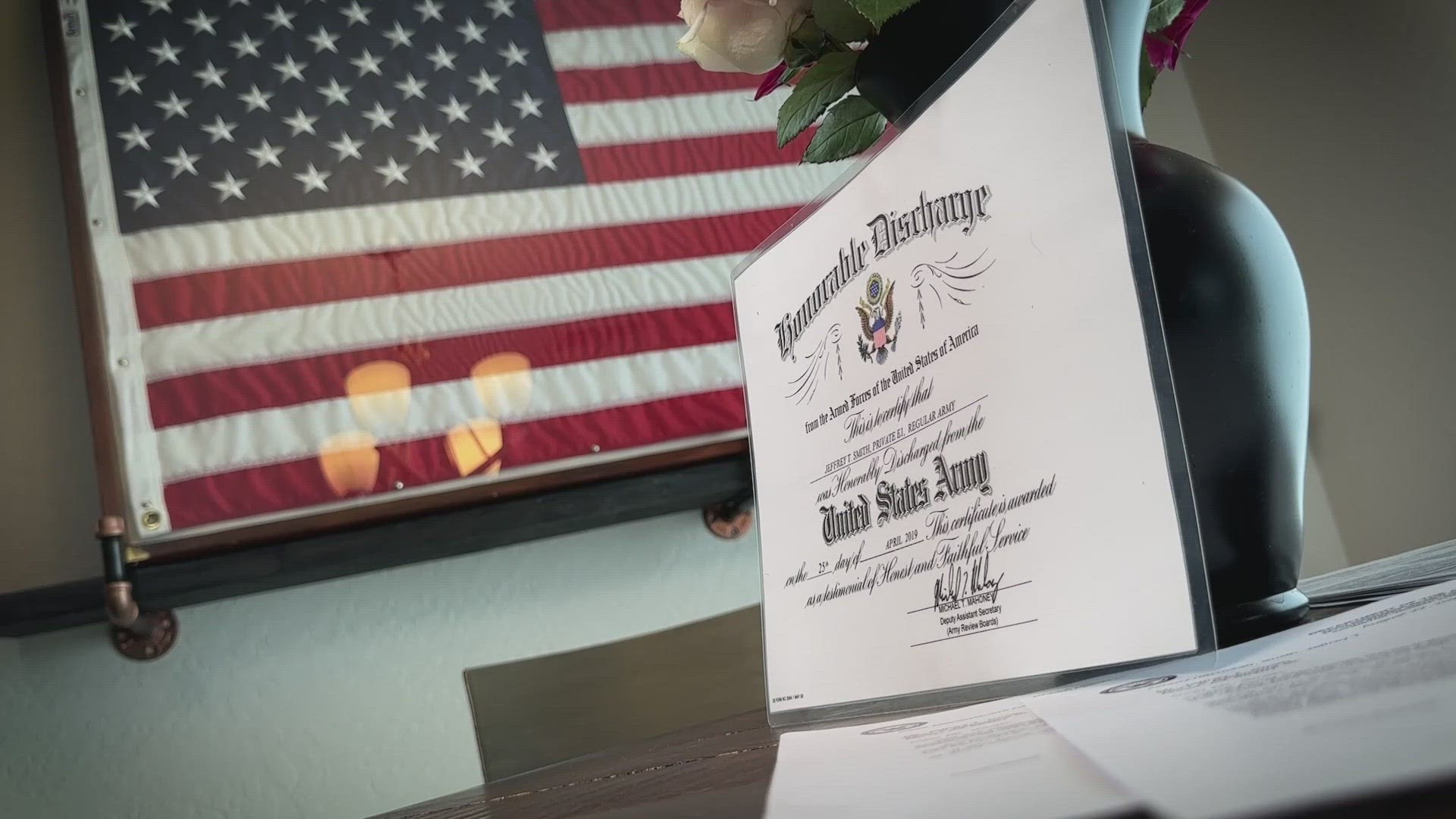A five-year-old foster child, known as M.D., had one constant in her turbulent life – her big sister.
As the state of Washington shuffled them between seven different foster homes in Western Washington, at least the girls had each other.
“Oh, they had a bond like no other,” said Missy Isaacson, the girls’ former foster mother who lives in Lacey. “It’s the most important relationship (either one of them) has. They went from foster home to foster home. They’re sisters. They’re blood. They’re everything to each other.”
Three years ago, the girls were separated when a court ordered M.D. to be placed with a Texas man who appeared to be her biological father. That split changed both of their young lives forever.
Three months after the move, in July 2015, M.D. was nearly beaten to death by the father – leaving her blind, brain damaged, non-verbal and a quadriplegic.
In October 2018, the state settled a lawsuit brought on behalf of the child for failing to protect her. The $19.3 million payout is the biggest settlement ever paid to an individual by DSHS, whose child welfare duties have since been assumed by the newly formed state agency, the Department of Children, Youth, and Families (DCYF).
“Her life was taken from her,” said Isaacson.


After M.D.’s long recovery in a Texas hospital, DSHS moved the girl back to Washington state. Someone special was waiting – her big sister, currently age eight, who was still a foster child in the Isaacson’s home. M.D. was placed at a rehabilitation home in Eastern Washington where her high needs could be met. The Isaacsons were able to take the older sister for reunions, events that the foster parents describe as magical moments for both girls.
“(M.D.) just started smiling. There’s a bond you cannot break,” said Isaacson.
“They were communicating in their own way, a secret code or however you want to talk about sisters connecting. They were doing that. It’s amazing,” said Jeff Isaacson.
But a year ago, DSHS stopped the visits. On September 29, 2017, after two and a half years in their care, the state removed M.D.’s sister from the Isaacsons’ Lacey home to live with a relative. She’s currently in King County. Since then, the girls have had no contact.
“After careful review of the agency’s records our investigation determined that the agency violated policy by failing to provide sibling visits,” wrote Mary Moskowitz, of the state’s Office of the Family and Children’s Ombuds in a letter dated September 14, 2018.
“To deprive (M.D.) of that is continuing DSHS’s failure in this case,” said Isaacson.
“All the trauma and everything that’s happened to M.D. and to keep adding more trauma when it’s not necessary, when it’s a sister bond. Why? Why?” said Missy Isaacson.
DCYF didn’t answer why the visits stopped, but the agency sent a statement explaining the importance of maintaining family and sibling bonds in the foster care system.
“Visits are vital in maintaining family connections and can improve the safety, permanency, and well-being of children in out-of-home care. Visits should be consistent and frequent with the proper level of supervision to ensure child safety. The visitation plan should be developed timely and include visits in the least restrictive setting based on risk factors, existing danger, safety threats, and protective factors,” wrote Debra Johnson, director of communications, DCYF.
Before being taken out of the Isaacsons’ home on April 24, 2015, M.D. was a perfectly healthy, busy toddler.
“She loved being outside, riding bikes. She was all about exploring,” said Isaacson. “(She was) on the move. Happy, healthy, perfect.”
The Isaacsons said they were crushed when they said goodbye, but also described themselves as happy M.D. would finally be with a biological parent whom DSHS social workers said was a safe and stable placement.
“We were told by DSHS that he had (one) robbery charge in 2005, but that he was young and dumb and nothing (negative) since then,” said Isaacson. “This is what foster care’s about – reunification (with biological parents). And this sounded like a great dad and step-mom.”
That wasn’t true. The father, Bryant Davis, had served two years in prison for aggravated robbery. He had convictions and prison sentences for assault causing bodily harm, three drug convictions, and a conviction for assault/domestic violence for pushing his wife to the ground and strangling her.
“We were deceived by DSHS. Yes, without a doubt,” said Missy and Jeff Isaacson.
Legal documents filed in the lawsuit against DSHS detail a string of policy violations in M.D.’s case. DSHS never followed through on a court-ordered paternity test or a parenting assessment. State social workers, according to the suit, also failed to verify Davis’ criminal history or to read a home study carried out by social workers in Texas that would have exposed other warning signs.
In a March 2015 court proceeding where DSHS recommended to a judge that M.D. be placed with her dad, the state told the court there were “no red flags” out of Texas. Social workers later admitted they had not read the Texas home study prior to the hearing.
“It’s such a failure on the part of the department (DSHS) to ignore the very thing they requested Texas (child welfare officials) to do to make sure this little girl was going to be safe if sent there,” said M.D.’s attorney, Timothy Tesh. “It’s also a violation of common sense.”
After the $19.3 million settlement agreement was announced on October 19, DCYF issued a statement to say the agency is “continually reviewing its practices and policies to ensure that a high standard of care is met in order to mitigate the risk of child abuse and neglect whenever possible.”
The Isaacsons said the state won’t allow them to visit M.D. in Eastern Washington. The foster parents said all they want is for M.D. to have access to familiar voices and people who love her in an effort to give her the best life possible.
“What they’re doing to these two girls...is appalling,” said Jeff Isaacson.
Davis is serving a 23-year prison sentence in Texas in connection with the beating.
Both M.D. and her sister continue to be wards of the state. It’s unclear when or if either will be adopted or if they will end up together again. The Isaacsons still hold a Washington state foster care license and said they are open to adopting the sisters.
Follow Susannah Frame on Twitter @SFrameK5.



